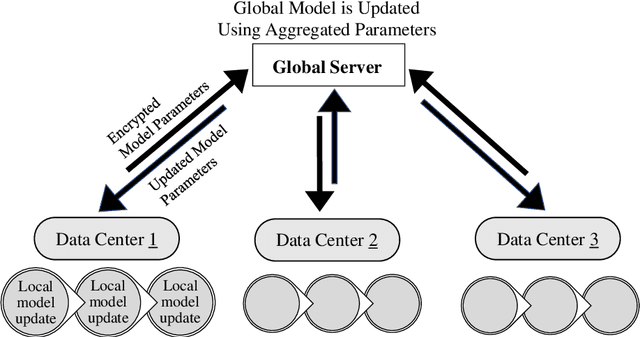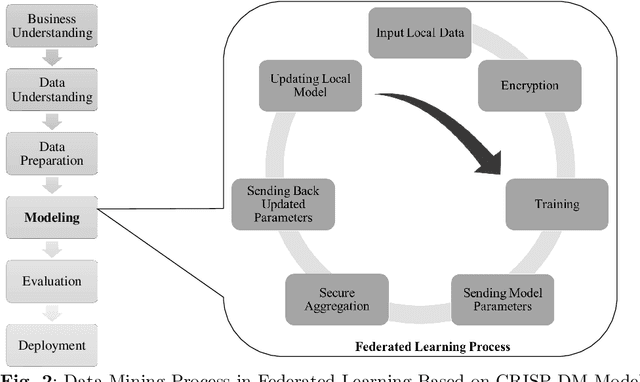Exploring Machine Learning Models for Federated Learning: A Review of Approaches, Performance, and Limitations
Paper and Code
Nov 17, 2023



In the growing world of artificial intelligence, federated learning is a distributed learning framework enhanced to preserve the privacy of individuals' data. Federated learning lays the groundwork for collaborative research in areas where the data is sensitive. Federated learning has several implications for real-world problems. In times of crisis, when real-time decision-making is critical, federated learning allows multiple entities to work collectively without sharing sensitive data. This distributed approach enables us to leverage information from multiple sources and gain more diverse insights. This paper is a systematic review of the literature on privacy-preserving machine learning in the last few years based on the Preferred Reporting Items for Systematic Reviews and Meta-Analyses (PRISMA) guidelines. Specifically, we have presented an extensive review of supervised/unsupervised machine learning algorithms, ensemble methods, meta-heuristic approaches, blockchain technology, and reinforcement learning used in the framework of federated learning, in addition to an overview of federated learning applications. This paper reviews the literature on the components of federated learning and its applications in the last few years. The main purpose of this work is to provide researchers and practitioners with a comprehensive overview of federated learning from the machine learning point of view. A discussion of some open problems and future research directions in federated learning is also provided.
 Add to Chrome
Add to Chrome Add to Firefox
Add to Firefox Add to Edge
Add to Edge